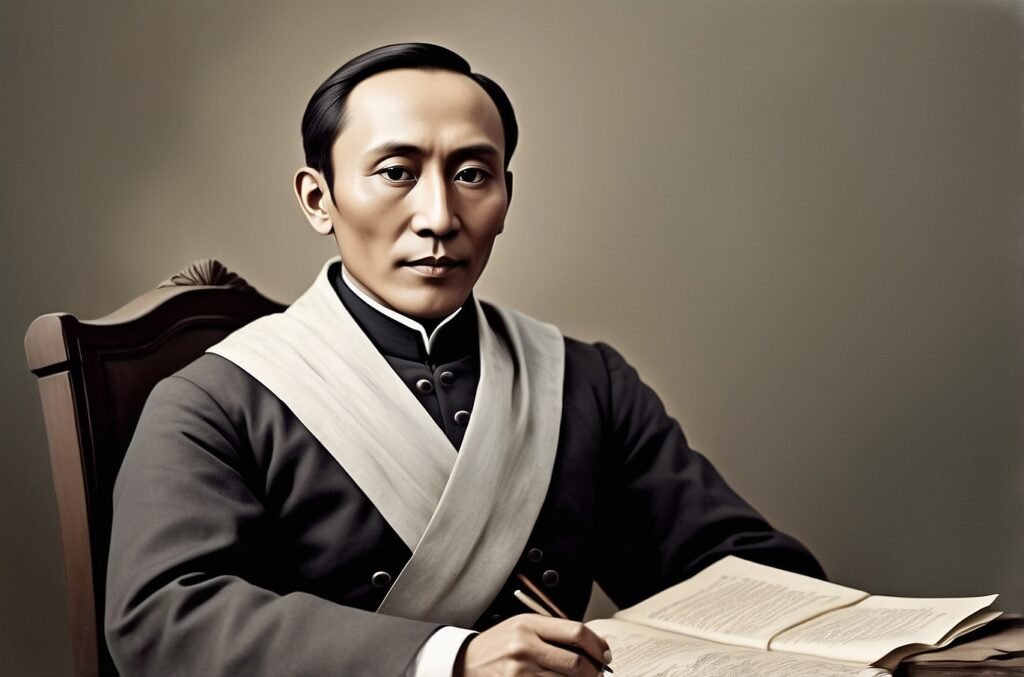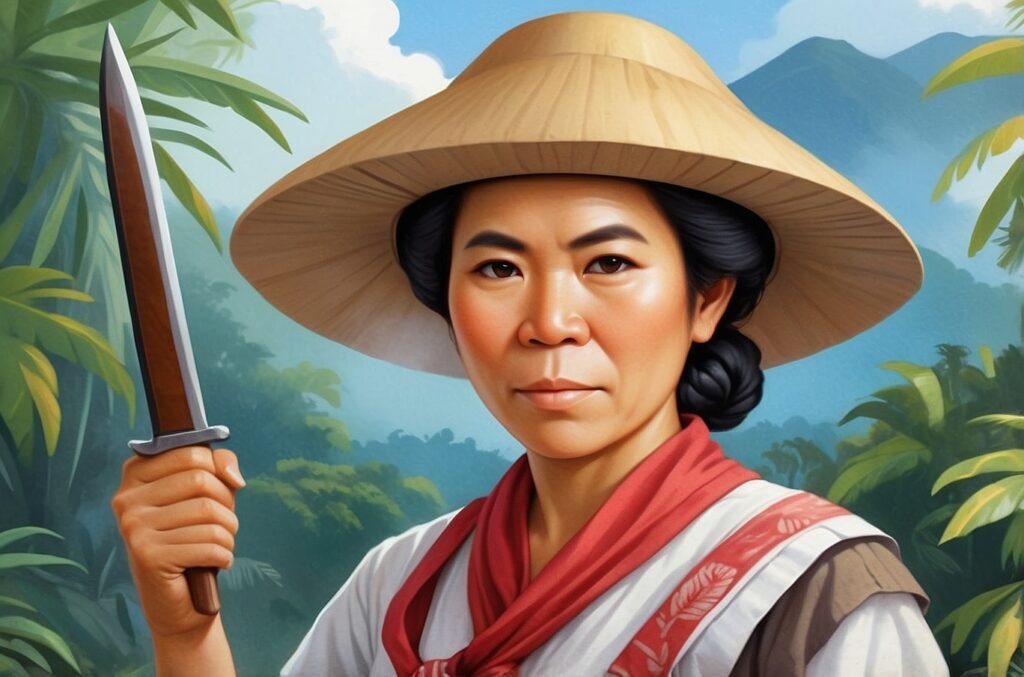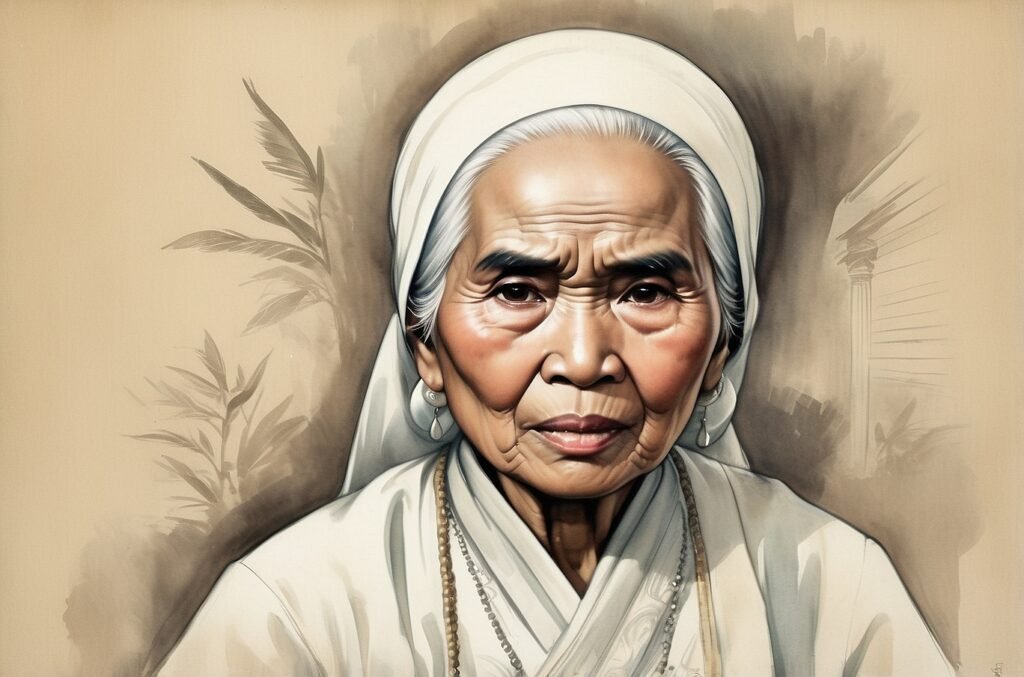Apolinario Mabini stands as one of the most influential figures in Philippine history, earning the moniker “The Sublime Paralytic” for his brilliant mind and unwavering dedication to the cause of Philippine independence despite his physical limitations. Born on July 23, 1864, in Talaga, Tanauan, Batangas, Mabini’s life journey would lead him to become a key architect of the Philippine Revolution and the fledgling Philippine Republic. This blog post delves into the life, achievements, and lasting legacy of Apolinario Mabini, exploring how his intellect and resilience shaped the course of Philippine history during a pivotal period of struggle and nation-building.
Early Life and Education
Humble Beginnings
Apolinario Mabini was born into a peasant family, the second of eight children of Inocencio Mabini and Dionisia Maranan. Despite the family’s modest means, Mabini’s parents recognized the value of education and made great sacrifices to ensure their children received schooling. Mabini’s early years were marked by a thirst for knowledge and an exceptional aptitude for learning, traits that would define his future trajectory.
Academic Excellence
Mabini’s academic journey began in his hometown, where he quickly distinguished himself as a gifted student. His exceptional performance caught the attention of a prominent priest, Father Valerio Malabanan, who offered to finance Mabini’s further education. This opportunity led Mabini to pursue higher studies in Manila, a decision that would profoundly shape his intellectual and political development.
In Manila, Mabini enrolled at the Colegio de San Juan de Letran, where he continued to excel academically. His time at San Juan de Letran was marked by numerous accolades and a deepening interest in philosophy, law, and political science. Mabini’s academic prowess earned him a scholarship to the University of Santo Tomas, where he pursued a law degree.
The Making of a Revolutionary Thinker
Intellectual Influences
Mabini’s years of study exposed him to a wide range of philosophical and political ideas that would shape his worldview. He was particularly influenced by the works of European Enlightenment thinkers and the principles of liberal democracy. These intellectual foundations, combined with his deep understanding of Philippine society and its struggles under Spanish colonial rule, formed the basis of his revolutionary ideology.
Joining the Reform Movement
As Mabini completed his law studies, he became increasingly involved in the Philippine Reform Movement. This movement, led by prominent figures such as José Rizal, sought to achieve reforms within the Spanish colonial system through peaceful means. Mabini’s legal expertise and sharp analytical mind made him a valuable asset to the movement, and he quickly rose to prominence among its ranks.
Table: Key Events in Mabini’s Early Political Career
| Year | Event |
|---|---|
| 1892 | Joined La Liga Filipina, founded by José Rizal |
| 1893 | Became the secretary of the Supreme Council of La Liga Filipina |
| 1896 | Arrested by Spanish authorities during the outbreak of the Philippine Revolution |
The Sublime Paralytic
A Life-Altering Diagnosis
In 1895, Mabini’s life took a dramatic turn when he was diagnosed with polio. The disease left him paralyzed from the waist down, a condition that would persist for the remainder of his life. This physical setback, however, did little to dampen Mabini’s intellectual vigor or his commitment to the cause of Philippine independence.
Overcoming Adversity
Despite his paralysis, Mabini continued to work tirelessly for the revolutionary cause. His condition earned him the nickname “The Sublime Paralytic,” a testament to his ability to transcend his physical limitations through the power of his intellect. Mabini’s resilience in the face of adversity became a source of inspiration for many of his compatriots and further cemented his reputation as a key figure in the independence movement.
The Brains of the Revolution
Advisor to Aguinaldo
As the Philippine Revolution gained momentum, Mabini’s reputation as a brilliant political thinker caught the attention of General Emilio Aguinaldo, the leader of the revolutionary forces. In 1898, Aguinaldo appointed Mabini as his chief advisor, a role that would earn him the title “Brains of the Revolution.”
Architect of the First Philippine Republic
In his capacity as Aguinaldo’s advisor, Mabini played a crucial role in shaping the political and legal foundations of the nascent Philippine Republic. He drafted important documents, including the decree creating the revolutionary government and the organic decree of June 23, 1898, which served as the basis for the revolutionary government’s operations.
The Malolos Constitution
One of Mabini’s most significant contributions was his work on the Malolos Constitution, the fundamental law of the First Philippine Republic. Although not all of his proposals were adopted, Mabini’s influence on the constitution was substantial, particularly in areas related to civil liberties and the structure of government.
Mabini’s Political Philosophy
Vision for Philippine Independence
Mabini’s political philosophy was characterized by a strong emphasis on genuine independence for the Philippines. He advocated for a clean break from Spanish colonial rule and was wary of American intentions following their defeat of Spain in the Spanish-American War. Mabini believed that true independence could only be achieved through the establishment of a stable, democratic government capable of safeguarding the rights and welfare of all Filipinos.
Emphasis on Education and Civic Virtue
Central to Mabini’s vision for the Philippines was the importance of education and civic virtue. He believed that a well-educated citizenry was essential for the success of democratic institutions and the overall progress of the nation. Mabini emphasized the need for Filipinos to develop a strong sense of national identity and civic responsibility.
Table: Key Elements of Mabini’s Political Philosophy
| Element | Description |
|---|---|
| Independence | Complete sovereignty and self-governance for the Philippines |
| Democracy | Establishment of democratic institutions and protection of civil liberties |
| Education | Emphasis on widespread education to create an informed citizenry |
| Civic Virtue | Promotion of patriotism and civic responsibility among Filipinos |
| Social Justice | Advocacy for equitable distribution of wealth and opportunities |
Mabini’s Written Works
“The True Decalogue”
One of Mabini’s most famous works is “The True Decalogue,” a set of ten guidelines for the moral and civic education of Filipinos. This document encapsulates Mabini’s vision for the ethical and patriotic principles that should guide the citizens of an independent Philippines.
Excerpt from “The True Decalogue”
- Love God and your honor above all things: God as the fountain of all truth, of all justice and of all activity; and your honor, the only power which will oblige you to be faithful, just and industrious.
- Worship God in the form which your conscience may deem most righteous and worthy: for in your conscience, which condemns your evil deeds and praises your good ones, speaks your God.
“La Revolución Filipina”
Another significant work by Mabini is “La Revolución Filipina” (The Philippine Revolution), a detailed account of the events and political maneuverings during the revolutionary period. This work provides valuable insights into the inner workings of the revolutionary government and Mabini’s own role in shaping its policies.
Conflict with the American Authorities
Opposition to American Occupation
As the Philippine-American War unfolded, Mabini emerged as a staunch critic of American occupation. He argued vehemently against accepting American sovereignty, believing that it would merely replace one colonial master with another. Mabini’s uncompromising stance on independence put him at odds with both the American authorities and some of his fellow revolutionaries who were more open to compromise.
Arrest and Exile
Mabini’s outspoken opposition to American rule led to his arrest in 1899. He was initially held in Manila but was later exiled to Guam along with other Filipino leaders who refused to swear allegiance to the United States. During his exile, Mabini continued to write and refine his political ideas, maintaining his commitment to the cause of Philippine independence.
Return to the Philippines and Final Years
Oath of Allegiance
After two years of exile, Mabini was allowed to return to the Philippines in 1903 on the condition that he take an oath of allegiance to the United States. Initially reluctant, Mabini eventually decided to take the oath, believing that he could better serve the cause of Philippine independence by working within the new political reality.
Continued Advocacy
Upon his return, Mabini resumed his political activities, albeit in a more subdued manner. He continued to write and speak on issues of Philippine governance and independence, offering critiques of American colonial policies and advocating for greater Filipino participation in government.
Untimely Death
Tragically, Mabini’s return to the Philippines was short-lived. On May 13, 1903, just months after his homecoming, Apolinario Mabini passed away from cholera. His death at the age of 38 cut short a life of remarkable intellectual achievement and patriotic service.
Legacy and Impact
Influence on Philippine Nationalism
Apolinario Mabini’s ideas and writings have had a lasting impact on Philippine nationalism and political thought. His unwavering commitment to independence and his vision of a democratic, just, and educated Philippines continue to inspire generations of Filipinos.
Recognition in Modern Philippines
Mabini’s contributions to Philippine history and nationhood are widely recognized in modern Philippines. His image appears on the 10-peso coin, and numerous schools, streets, and public spaces bear his name. The Mabini Shrine in Tanauan, Batangas, preserves his ancestral home and serves as a museum dedicated to his life and works.
Public Recognition of Apolinario Mabini
Recognition Level
^
|
| ****
| * *
| * *
| * *
|* *
+-------------------> Time
Colonial Modern
Period EraThis graph illustrates the increasing public recognition of Apolinario Mabini from the colonial period to the modern era, reflecting his growing status as a national hero.
Conclusion
Apolinario Mabini’s life and work stand as a testament to the power of intellect, conviction, and patriotism in the face of overwhelming odds. From his humble beginnings to his role as the “Brains of the Revolution,” Mabini’s journey embodies the struggles and aspirations of the Philippine nation during a critical period of its history. His unwavering commitment to independence, democracy, and social justice continue to resonate with Filipinos today, ensuring that the legacy of the “Sublime Paralytic” remains a vital part of the Philippines’ national identity and political discourse.
As we reflect on Mabini’s contributions, we are reminded of the enduring importance of education, civic virtue, and principled leadership in the ongoing project of nation-building. The challenges faced by Mabini and his contemporaries may belong to a different era, but the values and ideals they fought for remain relevant in the modern world. By studying and drawing inspiration from figures like Apolinario Mabini, we gain valuable insights into the foundations of Philippine democracy and the continuing struggle for social progress and national sovereignty.
Disclaimer: While every effort has been made to ensure the accuracy of the information presented in this blog post, historical accounts may sometimes vary. We encourage readers to consult multiple sources and primary documents for a comprehensive understanding of Apolinario Mabini’s life and legacy. If you notice any inaccuracies, please report them so we can promptly make corrections.




